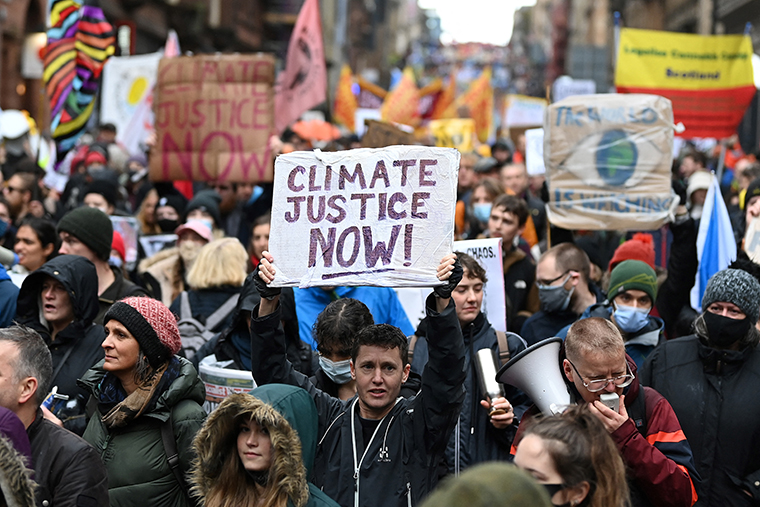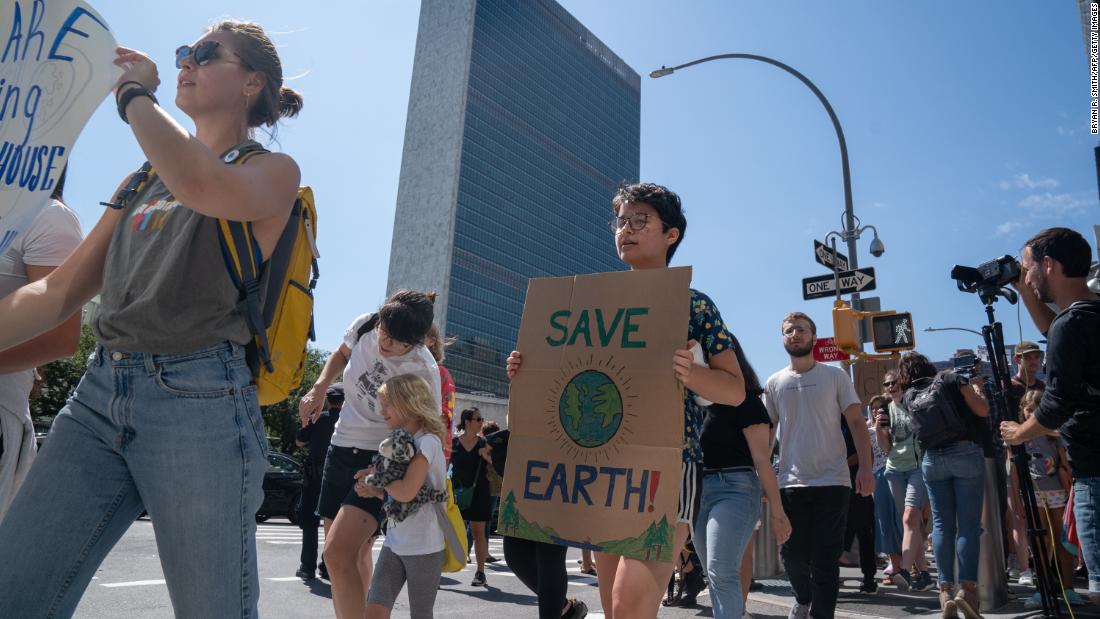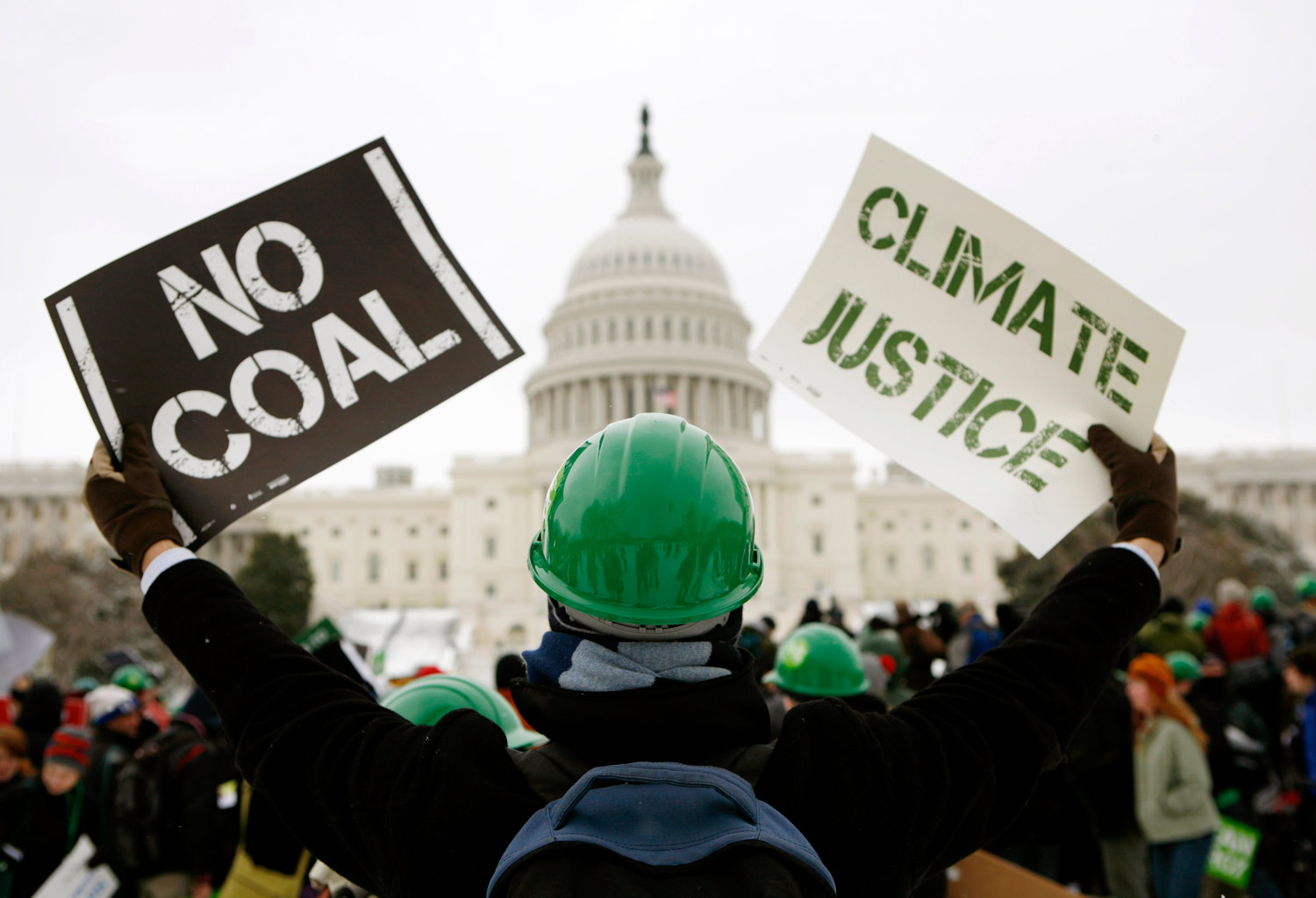
Climate and Peace Groups Join together
in First Global Week of Action
Arms, Militarism and Climate Justice Working Group
(September 21, 2024) — Peace and climate movements took action together in the first Global Week of Action for Peace and Climate Justice to highlight the connections between their causes.
The week ran from 21-28 September, with more than 50 events planned across five continents, in countries including Australia, the Democratic Republic of Congo, Germany, Malawi, Mexico, India, the Netherlands, Sweden, the UK and the USA, as well as many online.

The week of action aims to raise awareness of the links between war, militarism and climate injustice, such as the following:
- The world’s wealthiest countries have repeatedly failed to provide $100 billion in promised climate finance to help countries adapt to and mitigate the impacts of climate breakdown. Meanwhile, in 2023 global military spending increased for the ninth year running to $2443 billion.
- Experts estimate that the world’s militaries are responsible for 5.5% of global greenhouse gas emissions. If the world’s militaries were a country, they would have the fourth largest carbon footprint: higher than that of Russia. But militaries are excluded from current climate agreements, so face no accountability for their pollution.
The week also aims to build bridges between peace and climate justice movements, and to build momentum behind the demand to ‘divest from war – invest in climate justice!’
In New York City, there were events to coincide with the UN Summit of the Future. The Japan-based international NGO Peace Boat carred out workshops and actions in Tokyo and in the Atlantic ocean as part of its global voyage for peace. In Mexico, students created a list of demands directed to the Mexican Congress, asking them to divest funds from the armed forces and reinvest them in environmental public policies. In the UK, vigils were held in London, Taunton and Bath.

Oliver Robertson, head of witness and worship at Quakers in Britain, says:
“Quakers believe every human life is precious. Today, war and climate breakdown are two of the biggest barriers to a world where everyone can flourish. We are called by our faith to work for a peaceful and sustainable world, and we increasingly see how we cannot have one without the other.”
Yoshioka Tatsuya, Director and Founder of Peace Boat, says:
“Militarism not only drives vast consumption of fossil fuels and environmental destruction but also prioritizes military spending over investments in truly sustainable solutions. Through Peace Boat’s global voyages for peace, we have seen the same communities impacted by militarism including nuclear weapons, and the climate crisis. Demilitarization is vital for climate justice, especially for those on the frontlines who are the least responsible, and for ensuring a peaceful and sustainable future for all.”
Dr Stuart Parkinson, Executive Director of Scientists for Global Responsibility, says:
“Growing militarism is a key driver of carbon emissions – both directly through energy-hungry warplanes, warships, and armoured vehicles, and indirectly through military supply chains and the huge destruction caused by war. Without a concerted effort to find peaceful resolution to the world’s conflicts, climate targets will remain out of reach – jeopardising the future of vast numbers of people.”
Deborah Burton, Co-founder of Tipping Point North South, says:
“If the current trend continues, between 2024 and 2030 we can expect to see $17trillion spent on the heavily fossil fuel-reliant global military. As we face the prospect of overshooting 1.5 degrees of warming, this global week of action provides an invaluable opportunity to share our message: divest from war, invest in climate justice.”
David Swanson, Executive Director of World BEYOND War, says:
“The twin dangers that threaten life on Earth – war and environmental destruction – are deeply interlocked, and so must be our efforts to stop them. Together we must organize, educate, and agitate for no more wars for oil for wars for oil for wars!”
Wendela de Vries, researcher/activist from Stop Wapenhandel, says:
“The climate crisis is an urgent threat to the security of people and planet. It is good that peace and climate activists worldwide unite to keep militaries responsible for their pollution.”
Declan Owens, Ecojustice Ireland, says:
“We’re delighted to take part in the Global Week of Action for Climate Justice and Peace because we believe that the Northern Ireland peace process can benefit from taking a wider lens to the conflict and we wish to build connections between peace, climate and justice movements locally, nationally and internationally. Taking collective action to achieve climate justice can be a form of peace building in Northern Ireland, which can help to unite the various communities who were so divided during the Troubles.”
Daniele Taurino, from the national committee of the Italian Nonviolent Movement, says:
“We choose to promote this Week of Action because climate disarmament is what we need now. The military apparatus is moving with all its political and economic strength to have an undisputed leadership role in the face of the planetary emergency and maintain control in a world struggling with the climate crisis. Nonviolence can help us to reverse the course (assuming we are still in time) if we constantly feed it with disarmament proposals to make peace among humans and with nature.”
Timmon Wallis, National Coordinator of the U.S. Warheads to Windmills Coalition, says:
“Climate change and nuclear war are two existential threats facing us all. The billions of dollars, pounds and euros going into the next generation of nuclear weapons, not to mention the brains of some of our best scientists, engineers and technicians, are urgently needed for the swift and equitable transition to carbon-free electricity, transportation and heating. We need to tackle both these issues together if we are going to survive as a species. And it’s not too late, we can do this!”
The Global Week of Action for Peace & Climate Justice was coordinated by the Arms, Militarism and Climate Justice Working Group; an international network of researchers and activists committed to ending militarization of the climate crisis.